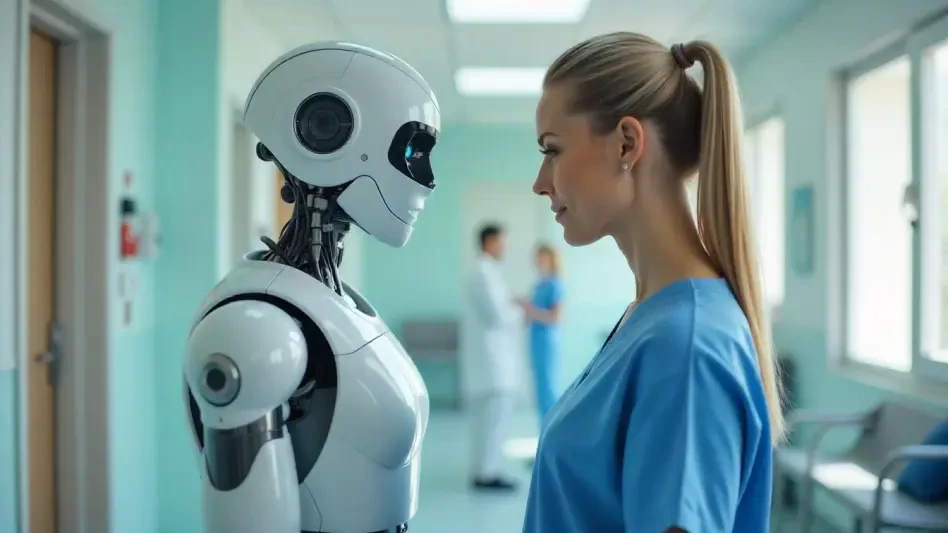Recent advancements in artificial intelligence (AI) have opened up new possibilities for mental health care. Dartmouth researchers recently conducted a study evaluating Therabot, a generative AI mental health chatbot, for its effectiveness in treating depression, anxiety, and eating disorders. This FAQ explores the findings and potential of Therabot in revolutionizing mental health treatment.
What is Therabot and how was it developed?
Therabot is an AI mental health chatbot created by clinicians at Dartmouth in 2019. It uses advanced Generative AI to provide targeted interventions, prompt questions, and offer empathetic support through a chat interface. Its development aimed to mimic therapeutic alliances typically formed between human therapists and patients, a relationship crucial for effective psychosocial therapies.
How was the study conducted, and who participated?
The first randomized controlled trial using Therabot was executed with 210 participants. Among them, 106 had clinically significant symptoms of major depressive disorder, generalized anxiety disorder, or eating disorders. Participants interacted with Therabot every day for 30 days and had an optional four weeks of additional use. The trial tested the chatbot’s therapeutic potential for mental health.
What results did the study reveal about Therabot’s effectiveness?
Participants who engaged regularly with Therabot reported significant improvements in their mental health. Those with major depressive disorder saw a 51% reduction in symptoms, individuals with generalized anxiety disorder experienced a 31% decrease, and participants with eating disorder symptoms noted a 19% reduction. These outcomes illustrate Therabot’s potential in alleviating different mental health issues.
What kind of interactions did participants have with Therabot?
On average, users engaged with Therabot for 6.18 hours over 24 days, sending roughly 260 messages in a month. The interactions ranged from simple conversations to more complex therapeutic dialogues, designed to emulate the empathetic and goal-oriented interactions seen in human therapies. Participants found Therabot intuitive and beneficial, often reporting feeling better after their chats.
How did participants react to using Therabot?
Participants generally showed high levels of adherence and satisfaction with Therabot. They considered it to be intuitive and beneficial, frequently reporting improvements in their mood and overall mental health. Despite occasional intervention needed for participant safety, the users’ consistent engagement and positive feedback highlight the chatbot’s promise as a digital therapeutic tool.
What are the benefits of using Gen AI chatbots like Therabot over traditional methods?
Gen AI chatbots provide several advantages over traditional mental health treatments. They offer personalized treatment at scale, making mental health care more accessible and scalable. This is particularly important given the current resource constraints and long wait times in conventional mental health care. Unlike rule-based AI, Gen AI like Therabot offers complex, personalized interactions that enhance user engagement and therapeutic outcomes.
What are the implications for the future of mental health care?
The success of Therabot suggests that with further validation, Gen AI chatbots could significantly reduce wait times and improve access to mental health care nationwide. They offer a scalable and accessible alternative to traditional therapies, addressing the gaps in current mental health resources. This could lead to more widespread use of AI in mental health treatment, providing timely care to those in need.
Are there any safety concerns with using AI chatbots for mental health?
While Therabot demonstrated high adherence and positive user feedback, there were instances where intervention for participant safety was required, particularly in cases of suicidal ideation. This underscores the importance of having safety protocols in place when using AI chatbots for mental health treatment, ensuring participants receive appropriate care whenever necessary.
What further research is needed for AI chatbots in mental health?
Further research is needed to validate the effectiveness of AI chatbots like Therabot across a broader population and diverse mental health conditions. Long-term studies can determine the sustained impact of such interventions and uncover any potential limitations or areas for improvement. Continuous development and rigorous testing will be crucial for these AI tools to become a standard part of mental health care.
In conclusion, the study conducted revealed promising results for the use of AI chatbots in mental health treatment. By offering personalized and scalable therapy, tools like Therabot could revolutionize mental health care, making it more accessible and effective. However, ongoing research and safety considerations remain essential as the technology continues to evolve and integrate into standard practice.









